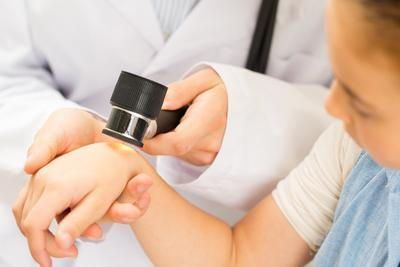Summer camp is an exciting adventure for many children—new friends, outdoor fun, and memories that last a lifetime.

But between bug bites, scraped knees, and germs that spread easily in shared spaces, staying healthy at camp can be a challenge. As pediatric nurse practitioners, one of the most common questions we hear this time of year is how to prepare kids for a safe and healthy camp experience. The good news is that with a little planning, your child can enjoy every part of camp life while staying well.
Start with a Pre-Camp Checkup
Before camp begins, a visit to your pediatric provider is one of the most important steps. A well-child exam makes sure your child is healthy enough for camp activities and that their vaccinations are up to date—including any required by the camp. It’s also a good time to review any chronic conditions like asthma, allergies, or diabetes, and ensure the camp staff will have clear instructions on how to manage them.
If your child takes daily medications, ask your pediatric provider about storage, timing, and any special instructions. Camps typically require signed forms for medication administration, so getting everything in order ahead of time helps avoid last-minute stress.
Teach Good Habits Before Drop-Off
Even young kids can learn basic hygiene habits that will serve them well at camp. Remind your child to wash their hands before eating and after using the restroom, to use their own water bottle, and to avoid sharing hats, combs, or towels. These small actions go a long way in preventing the spread of illness and skin conditions like lice or impetigo.
Sun safety is another must—send your child with broad-spectrum sunscreen and teach them how to apply it regularly, especially during swim times. For camps in wooded areas, pack insect repellent and show your child how to use it properly.
What to Pack for a Healthy Week
A well-stocked bag can help your child handle minor health issues on their own or with staff help. Include labeled medications, hand sanitizer, extra masks if needed, a refillable water bottle, bandages, and any comfort items they may need for sleep or emotional reassurance. If your child has food allergies or dietary needs, double-check the camp’s meal plan and send snacks if appropriate.
Support from Pediatric Professionals
Even with great preparation, kids can get sick or injured at camp. If your child returns home with lingering symptoms—like a persistent cough, rash, or upset stomach—it’s a good idea to schedule a follow-up visit with your pediatric provider.
Summer camp is a special time, and staying healthy is part of making it a success. With guidance from a pediatric nurse practitioner and a few smart habits, your child can enjoy camp safely and confidently all summer long.











